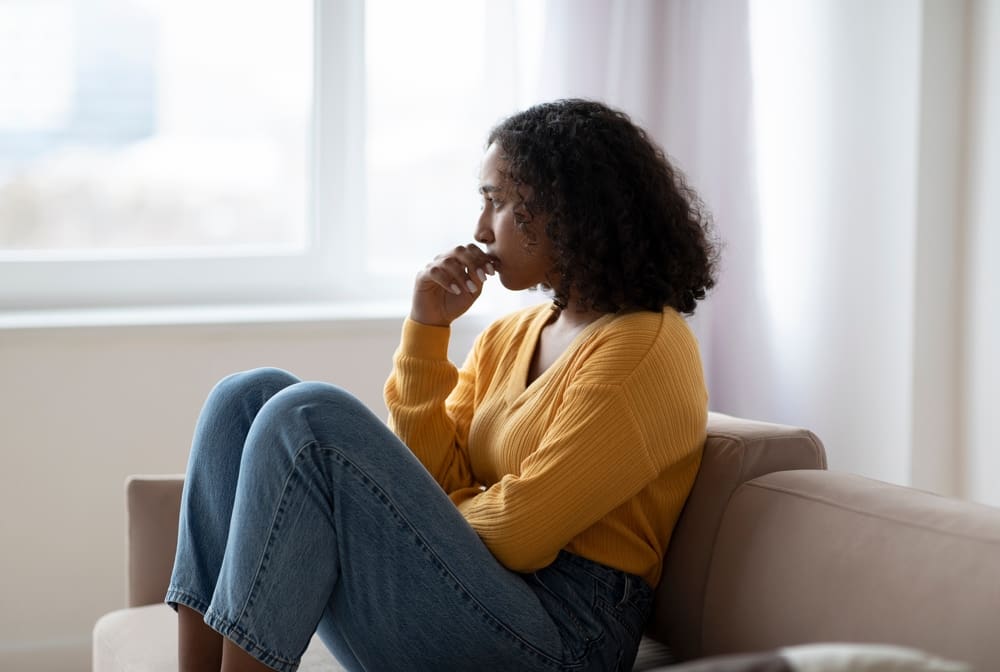Reasons Women Stay in Abusive Relationships

By Esther Claudette Gittens
The issue of women remaining in abusive relationships is complex, encompassing a variety of personal, social, and legal factors. This analysis explores the reasons why women, whether married or unmarried, stay in physically abusive relationships. It delves into influences such as religious beliefs, a history of abuse, financial dependency, and legal status in the United States. Additionally, it provides guidance on what these women should do and outlines the legal remedies available to them under New York State, New York City, and federal law. Finally, it examines why some women blame themselves for the abuse they endure. For more information on this analysis, please visit the Law Firm of Figeroux and Associates at www.askthelawyer.us. Here are some reasons why women stay:
- Religious Beliefs
Many women stay in abusive relationships due to religious beliefs. Some religions emphasize the sanctity of marriage and the importance of family unity, which can discourage divorce or separation. Women may feel a spiritual obligation to endure suffering or believe that their faith requires them to stay and work on the relationship, regardless of the abuse.
- History of Abuse in the Family
A history of abuse in the family can predispose women to tolerate abusive relationships. If a woman grew up witnessing domestic violence, she might perceive such behavior as normal or inevitable. This normalization of abuse can make it difficult for her to recognize the severity of her situation and seek help.
- Financial Dependency
Financial dependency is a significant barrier for women attempting to leave abusive relationships. Abusers often control their partner’s finances, limiting their ability to save money, secure employment, or access financial resources. The fear of financial instability and homelessness can trap women in abusive situations.
- Legal Status in the United States
Women who are undocumented or have uncertain legal status in the United States face additional challenges. They may fear deportation if they report abuse or leave their abuser, particularly if their immigration status is tied to their partner. This fear can be exacerbated by threats from the abuser, making it difficult for women to seek legal protection or services.
- Emotional and Psychological Manipulation
Abusers often employ emotional and psychological manipulation to control their victims. They may isolate women from their support networks, erode their self-esteem, and make them feel dependent. This manipulation can lead women to believe they are to blame for the abuse or that they cannot survive without their abuser.
What Women Should Do
- Seek Support
Women should seek support from trusted friends, family members, or community organizations. Having a support network can provide emotional strength and practical assistance in planning to leave the abusive relationship.
- Create a Safety Plan
Creating a safety plan is crucial. This plan should include important steps such as identifying a safe place to go, having a packed bag with essential items, and establishing a code word with trusted individuals to signal danger.
- Contact Domestic Violence Hotlines and Shelters
There are numerous hotlines and shelters dedicated to assisting victims of domestic violence. These resources offer immediate help, including safe housing, counseling, and legal advice. In New York City, the NYC Domestic Violence Hotline (1-800-621-HOPE) and Safe Horizon are valuable resources.
- Seek Legal Advice
Women should seek legal advice to understand their rights and options. Legal aid organizations can provide free or low-cost assistance to help women navigate the legal system, obtain protective orders, and address immigration concerns.
Legal Remedies in New York State, New York City, and Federal Law
New York State Law
Orders of Protection
In New York State, victims of domestic violence can obtain orders of protection from family courts or criminal courts. These orders can mandate the abuser to stay away from the victim, cease contact, and move out of a shared residence.
Family Offense Petition
Victims can file a family offense petition in family court, which can lead to orders of protection and additional remedies such as temporary custody and child support.
New York City Law
Domestic Violence Courts
New York City has specialized domestic violence courts designed to handle cases involving intimate partner violence. These courts provide a coordinated response to domestic violence, offering support services and ensuring accountability for abusers.
NYC Human Rights Law
The NYC Human Rights Law provides protections against discrimination and harassment, including in housing and employment. Victims of domestic violence can seek relief if they face discrimination due to their status as a survivor.
Federal Law
Violence Against Women Act (VAWA)
The Violence Against Women Act (VAWA) offers comprehensive support to victims of domestic violence. It provides funding for shelters, legal services, and hotlines. VAWA also includes provisions for immigrant victims, allowing them to apply for legal status independently of their abuser through VAWA self-petitions or U visas.
U Visa
The U visa is available to undocumented victims of certain crimes, including domestic violence. It provides temporary legal status and work authorization for up to four years, with the possibility of applying for permanent residency.
Why Some Women Blame Themselves
- Psychological Manipulation
Abusers often use psychological manipulation to make victims feel responsible for the abuse. They may blame the victim for provoking them or convince them that they are unworthy of better treatment. This manipulation can deeply affect a woman’s self-perception.
- Societal Attitudes
Societal attitudes and cultural norms can reinforce self-blame. Victims may internalize messages that suggest they are at fault for staying in the relationship or that they should have done more to prevent the abuse.
- Low Self-Esteem
Years of abuse can erode a woman’s self-esteem and self-worth. She may begin to believe that she deserves the abuse or that she is incapable of finding a healthier relationship.
- Fear of Judgment
Fear of judgment from others can also lead women to blame themselves. They may worry about being stigmatized or not believed if they disclose the abuse, which can perpetuate feelings of shame and guilt.
Conclusion
Women remain in abusive relationships for a myriad of reasons, including religious beliefs, a history of familial abuse, financial dependency, legal status, and psychological manipulation. To address this complex issue, it is crucial to provide comprehensive support and legal remedies tailored to the needs of survivors. In New York State and New York City, there are various legal protections and resources available to help women escape abusive situations and rebuild their lives. Understanding why some women blame themselves is essential in providing compassionate and effective support. Empowering women with knowledge, resources, and a supportive network is key to helping them break free from the cycle of abuse and achieve safety and independence.




Leave a Reply